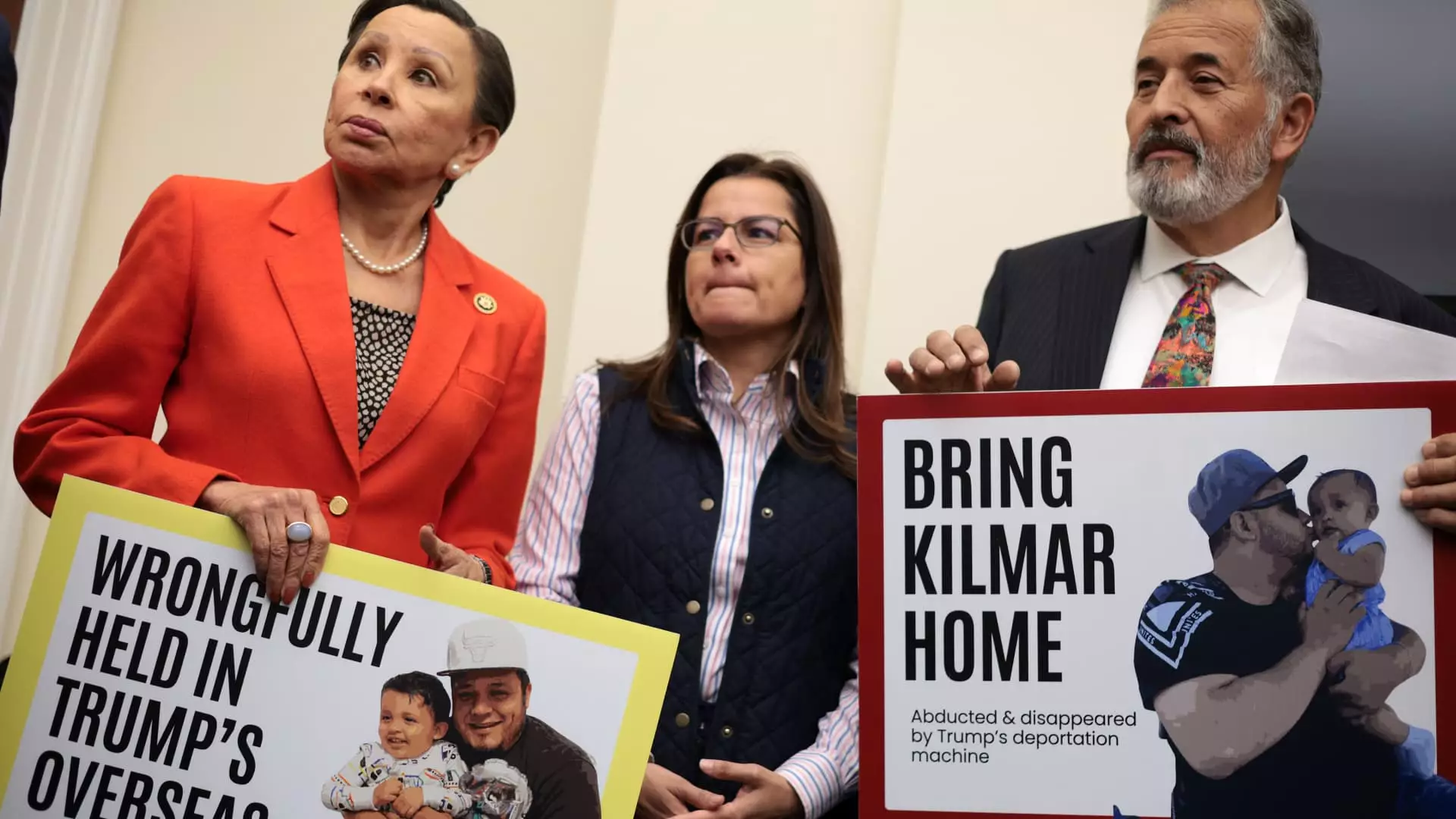In a striking demonstration of the ongoing tensions between the judiciary and the executive branch, U.S. District Judge Paula Xinis has questioned the legitimacy of the Trump administration’s compliance with court orders concerning the deportation of Kilmar Abrego Garcia. This case highlights not only the complexities of immigration enforcement but also raises alarming concerns about the administration’s willingness to bypass judicial review. The chilling implications of such actions shed a light on a more profound crisis in governance, where the rule of law risks being subjugated to political whims.
Garcia’s deportation to El Salvador—in direct violation of protective judicial orders—stands as a stark reminder of the potential consequences of unchecked executive power. Judge Xinis’s recent demands for transparency from U.S. officials mark an effort to hold the government accountable, yet they also evoke the poignant question: at what point does governmental overreach become a blatant disregard for the judiciary? As she stated, the record indicates “nothing has been done,” resonating with an exasperated public that has witnessed similar bypassings of justice on numerous occasions.
Defying Established Norms
The administration’s response—or lack thereof—to Judge Xinis’s orders encapsulates a broader trend of undermining the judiciary’s role in immigration matters. By asserting that certain documentation would bear no relevance, the government demonstrates a dismissive attitude towards the rule of law. This situation exemplifies a deeply troubling practice of blurring boundaries between powers that are meant to be distinct, thereby inviting scrutiny across the spectrum of legislative, executive, and judicial functions.
Once viewed as a custodian of justice, the judiciary has become increasingly embroiled in contentious battles against an administration determined to enforce its policies, regardless of their legality. This collision course appears especially troublesome in cases such as Garcia’s, where the urgency of political agendas trivializes the very tenets of due process. Judge Xinis, appointed by President Obama, remains resolute in her position as gatekeeper against this tide of executive encroachment, signaling that stalwart judges like her are essential in safeguarding judicial independence.
The Politicization of Institutions
The battle for Kilmar Abrego Garcia’s return underscores a broader assault on institutions that are, by design, insulated from partisan politics. Trump’s intent to sideline the judiciary reflects a perilous precedent where executive decisions are presumed superior. The administration’s aggressive approach towards institutions—be they educational, legal, or governmental—appears driven not only by policy but also by an ideological imperative to reshape the fabric of American governance.
The incident raises significant queries regarding the Trump administration’s broader disdain for legal advisory. The attempt to silence dissenting voices within legal circles demonstrates an unsettling trend towards consolidating power while delegitimizing any opposition, particularly from the judiciary. Compounding the chaos are threats to drastically alter the tax-exempt status of institutions like Harvard, should they fail to comply with demands perceived as unlawful—a tactic that echoes authoritarian regimes globally.
A Climate of Fear and Silence
The implications of such practices are far-reaching. They foster an unsettling climate of fear, whereby legal representatives are pressured to capitulate to demands that threaten their independence. The recent block of restraining orders against legal professionals attempting to navigate these murky waters underscores the fragility of legal institutions as they grapple with the administration’s demands. For many, the challenges lie not only in advocacy for their clients but also in preserving the integrity of their professions amidst mounting pressures.
Amidst this turmoil, an observant public has begun to rally against such flagrant disregard for civil rights. Supporters of Kilmar Abrego Garcia find themselves questioning the efficacy of a system that seemingly places little value on their struggles. Public figures, like Senator Chris Van Hollen, are stepping into the fray, ready to confront Salvadoran officials to advocate for Garcia’s welfare. Yet the burden largely lies on everyday citizens to make their voices heard and demand accountability from those in power, a charge that grows increasingly vital under a regime that seems bent on ignoring foundational legal principles.
In a move that aligns well with center-left liberalism, the need for sustained advocacy for human rights and judicial independence cannot be overstated. The case of Kilmar Abrego Garcia represents an ongoing cautionary tale in the age of political confrontations, serving as a stark call to action for those who value democracy’s checks and balances. The intersection of immigration policy and judicial authority becomes a litmus test for the health of American democracy—one that we must navigate with vigilance and conviction.


Leave a Reply